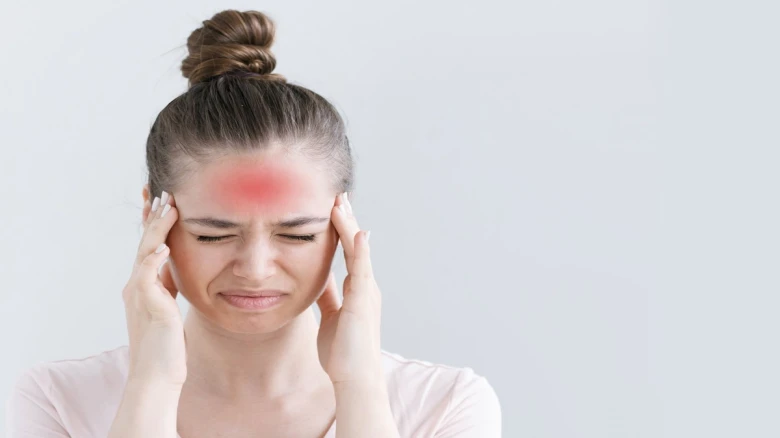Various environmental factors such as stress, certain foods, and lifestyle habits can trigger migraine attacks.......
Digital desk: Migraine often misunderstood as a mere headache, is a complex neurological condition characterized by throbbing pain, usually on one side of the head. Symptoms like nausea, sensitivity to light and sound, and sometimes visual disturbances, and migraines can significantly disrupt daily life.
While genetic predisposition plays a role, various environmental factors such as stress, certain foods, and lifestyle habits can trigger migraine attacks. Avoiding triggers like alcohol, stress, dry fruits, and cultured dairy products can help minimize the frequency and intensity of migraines. There are some remedies which can be easily followed at home and don't need much time.
Acupressure: Acupressure is a holistic healing technique that involves applying pressure to specific points on the body to alleviate various ailments, including migraine pain. While acupressure may not be a cure for migraines, it can provide relief by helping to release tension, improve circulation, and promote relaxation.
Magnesium Supplements: Magnesium deficiency has been linked to migraines, and supplementing with magnesium may help reduce their frequency. Magnesium plays a crucial role in regulating blood vessel constriction, both of which are implicated in migraine pathology. Adding magnesium-rich foods like nuts, seeds, and leafy greens to your diet can also be beneficial.
Hydration: Dehydration is a common trigger for migraines. Ensuring adequate hydration by drinking plenty of water throughout the day can help prevent attacks. Additionally, sipping on herbal teas or electrolyte-rich drinks like coconut water can replenish electrolytes and maintain hydration levels.
Ginger: Ginger has anti-inflammatory properties and can help alleviate migraine symptoms like nausea and vomiting. Consuming ginger tea or simply chewing on a small piece of raw ginger at the onset of a migraine attack may provide relief.
Rest: Stress is a well-known trigger for migraines, and adequate rest can help mitigate its effects. Practicing relaxation techniques such as deep breathing, meditation, or yoga can help reduce stress levels and prevent migraine episodes. Ensuring a consistent sleep schedule and creating a relaxing bedtime routine can also promote better sleep quality, reducing the likelihood of migraines.
These home remedies into your lifestyle can complement medical treatments and help manage migraine symptoms effectively. However, it's essential to consult with a healthcare professional for personalized advice and treatment recommendations. With patience and persistence, finding the right combination of remedies can bring relief and improve the quality of life for migraine sufferers.

Leave A Comment